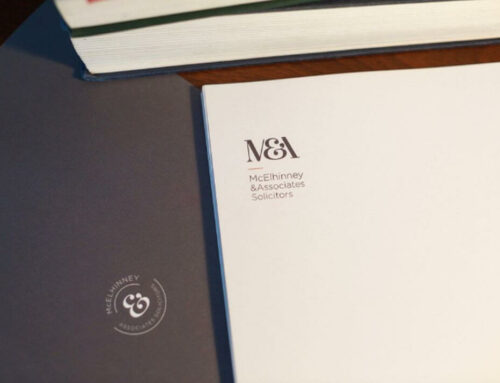What is Probate ?
Probate in Ireland is the legal and formal process that allows a person (known as an executor or administrator) to deal with the assets of the deceased. The formal and legal authority for that person to deal with the deceased’s assets is given in the form of a document known as a Grant of Probate or a Grant of Administration. A Grant of Probate is used when the deceased has made a Will and the person with authority to deal with the deceased’s assets is known as the “Executor”.
If the deceased did not make a will the Grant is known as a Grant of Administration and the legal personal representative is known as the “Administrator”.
Why Does a Will go to Probate?
A Will goes to the Probate Office to be ‘proved’. This means the Probate Office are satisfied that the Will is valid. The Probate procedure is required to prove the will and protect the beneficiaries of that Will, otherwise financial institutions would not know who to release the deceased’s assets. It also allows the Land Registry to rely on the Grant as evidence of who has authority to sell or transfer the deceased’s assets (house/lands etc).
Why do I take out a Grant of Probate/Administration?
When somebody dies leaving behind him/her land or property then it will be necessary to apply to the Probate Office for a Grant of Probate/Administration so that the land can either be sold or transferred into the name of another person. If the deceased held money in a bank or financial institution in their sole name, a Grant may be required depending on the monetary value of the account.
Do all deaths go to Probate?
A Grant of Probate/Administration may not always be required. If the person dies leaving property or land jointly owned with another then that asset may automatically pass to the surviving joint owner. In such a case a Grant may not be required. If the deceased died leaving a joint bank account, the funds in the account automatically pass to the surviving account holder. A Grant may be required depending on the type of account and the reasons for which the joint account was created.
Is Probate always required?
It may not always be necessary to extract a Grant from the Probate Office in an estate of a deceased. A Grant will not always be required where assets and property are held in joint names. If the estate comprises of a bank account with less than €25,000 in the sole name of the deceased, this can often be dealt with under the Small Estates Procedure. The requirement for the Small Estates Procedure varies among the financial institutions.
If the estate comprises land or property owned solely by the deceased, then a Grant will always be required.
What does the Probate Process/Applying for a grant involve?
If you are the person with the authority to deal with the estate, then you will want to know what this involves. Firstly, it will involve gathering a significant amount of information pertaining to the assets in the estate such as real assets (dwelling houses, lands) and personal assets (bank accounts, investments, private pensions, death in service benefits, gratuities, life policies). The value of these assets will need to be calculated and this can often involve obtaining professional valuations from estate agent and corresponding with financial institutions.
If the deceased died leaving a Will, then the beneficiaries will be easily identified, however where the deceased died without a Will the identification of the persons entitled to the deceased’s estate may become more complex and this is where you will need the professional advice and assistance of your solicitor. Details of all of the assets, the value of all of the assets and the estate together with the details of all of the beneficiaries in the estate are then logged on the Revenue statement of affairs (Inland Revenue Affidavit) which is a sworn document and an accurate outline of the deceased’s affairs. This document is submitted to the Revenue Commissioners. The Probate application forms are then prepared, and you will then attend to swear these documents before they are then lodged in the Probate office for inspection.
Who pays the Probate Costs?
The legal costs are paid from the estate. This means that the cost of Probate in Ireland are paid from the deceased’s property and assets and these costs will be paid in priority to any inheritance due to the beneficiaries.
How long does Probate take in Ireland?
The time scale required to complete probate will very much depend on the individual circumstances of each case. The Probate Office in Dublin currently has a time scale of 10-16 weeks from the date papers are lodged.
Once the Grant of Probate/Administration is issued, this formal document is then provided to the various financial institutions and the assets and monies in the estate are collected.
If queries are raised in relation to the validity of the will, the will is contested, the process can take longer. Similarly, if the Probate Office requires clarification or raises queries in relation to a will it may become necessary to provide further information and documentation such as to trace witnesses and have them assist the solicitor in dealing with the probate queries.
The law allows one year known as “the executor’s year” for the personal representative to deal with the estate. Much depends on the size and complexity of the estate and can depend on matters such as identifying and locating beneficiaries or indeed where litigation is issued against the estate.
How much does Probate Cost in Ireland?
The solicitor’s professional fee in Probate very much depends on the value of the estate to be administered. The fees are charged on a percentage base which can often be on a sliding scale. At McElhinney and Associates we apply the following fee scale:
3.5% on the first €20,000
3% on the next €20,000
2.5% on the balance of the estate plus VAT
In addition to the solicitors’ professional fee, the Probate Office fees to be paid are also based on the value of the estate and this figure will be determined once the estate has been valued.
Settling the Estate after death?
Once the Grant has issued from the Probate Office this means that the Personal Representative (Executor/Administrator) has the legal right to administer the deceased’s estate. This will involve obtaining all of the monies in the estate from financial institutions, holdings or life policies etc. It also allows the administrator/executor to discharge all and any liabilities to deaths expenses and liabilities outstanding in the estate. It also allows the seal of transfer of any real assets (lands, dwelling houses) to proceed. Where the deceased left a Will, the assets will be distributed in accordance with the terms of the Will to the named beneficiaries. Where the deceased did not make a Will, the estate will be distributed as per the terms of the Succession Act 1965.
In Ireland there is a concept known as the Executor’s Year which gives the executor 12 months to distribute the estate starting from the date of the testator’s death.
Contesting a Will after Probate?
A Will can be contested after a Grant of Probate has issued. In some cases, it will be necessary to wait until the Grant of Probate has issued before commencing proceedings.
How do I find out if my loved one left a will?
Fortunately, nowadays most individuals execute a will, the original will is usually either in the deceased’s home, with another family member or in their solicitor’s office. The will should be located as soon as possible after the deceased’s death. A solicitor can also assist in ascertaining whether the deceased left a will by writing to all local solicitors in the vicinity and far and wide if necessary.
How are funeral expenses paid?
It is not necessary for loved ones, family members and executors to wait for the Grant to issue in the deceased’s estate in order to make payment of the funeral expenses, providing there is sufficient funds in the deceased’s bank account. The funeral director’s bill can be presented to the appropriate financial institution along with a copy of the death certificate and that financial institution will release the relevant sum to discharge the funeral expenses. The balance of the bank account will then be held pending the issuing of the Grant and the distribution of the estate in due course.
Capital Acquisitions Tax (CAT)
Capital acquisitions tax is a tax that is charged on the taxable value of the gift or inheritance passing. There is a tax free allowance called “threshold”. An individual has three types of thresholds depending on the relationship between the donor giving the gift/deceased and the individual benefiting from the gift/inheriting in the estate. The current group thresholds (subject to budgetary changes) are as follows: –
- Group A – mother, father, child €335,000
- Group B – brother, sister, niece, nephew, grandchild €32,500
- Group C – strangers in blood (this covers all other relationships not covered above) €16,250
These tax-free allowance thresholds are a once only threshold applied from the 5th of December 1991 to date. Therefore, the threshold can be used for either multiple inheritances within the same group or may be exhausted by one gift or inheritance. Once the group threshold is exceeded the inheritance or gift is then taxed at 33% which applies on the balance of the gift of inheritance. There are certain exemptions and reliefs from capital acquisitions tax:
- A favoured niece, nephew relief
- Business relief
- Dwelling house relief
- Child to parent relief and exemption
- Agricultural relief
- Small gift exemption of €3,000
- Surviving spouse relief
- Spouse to spouse and civil partner to civil partner exemption
It is vital that all beneficiaries obtain tax advice on the possible tax implications of any gift or inheritance as interest and penalties can apply to late payments.
Capital acquisitions tax is charged on the balance of the gift or inheritance after the deduction of the allowable threshold. Expenses properly incurred can also be deducted.
Property and assets in another jurisdiction
If a deceased left property, bank accounts or assets in another jurisdiction outside of the Republic of Ireland then advice should be sought in that jurisdiction as regards their requirements to deal with the asset in that estate. The Irish Grant will not be sufficient to deal with the assets in another jurisdiction. Legal advice should be obtained from a solicitor in that particular country in which the property or asset is situate in order to ensure that the foreign estate is distributed according to the deceased’s wishes. It may be necessary to firstly establish if the deceased left a will in that particular jurisdiction.
Different Types of Grants
Most common types of Grants issued by the Probate Office
- Grant of Probate. This is required when a person dies leaving a valid will and appoints an executor within the will.
- Grant of Letters of Administration. This is where a person dies without leaving a valid will. The person entitled to extract the Grant of Administration in such instances is strictly set out by the Succession Act 1965 and is the nearest next of kin of the deceased at the date of death.
- Letters of Administration with Will Annexed. This Grant issues where a person dies having made a valid will however a person other than the executor makes application to extract the Grant. This type of Grant will be required where an executor has died, unwilling to act or where no executor is appointed under the will. This type of Grant issues to the person entitled to the residue in the will.
Beneficiaries
The beneficiaries are the persons entitled to inherit under the will or on intestacy (no will). Beneficiary details including their PPS numbers and details of previous gifts or inheritances are required from all beneficiaries in order to complete the Statement of Affairs (SA2) for the Revenue Commissioners. Beneficiaries must complete a capital acquisitions tax return, in certain circumstances, depending on the value of their inheritance. It is important that beneficiaries file their tax returns and pay any necessary capital acquisitions tax on time to avoid any unnecessary interest and penalties.
Helpful list for Administrator/Executor
The following is a list of the basic information and documents which will be required from the administrator/executor in order for the solicitor to deal with the estate: –
- Death certificate
- Funeral bills and expenses
- Original Will and any amendments or codicils
- Where there is no will, a list of all of the next of kin of the deceased to include spouse, civil partner, co-habitee, children, parents, brothers, sisters, nieces, nephews etc. Predeceased family members must also be disclosed.
- The address of all beneficiaries and next of kin
- PPS numbers for all beneficiaries and next of kin
- A list of assets of the deceased including property, bank accounts, Credit Union accounts, Post Office accounts, details of any shares, investments, pensions, prize bonds, cars etc.
- Details of any debts including funeral and testamentary expenses, car loans, outstanding loans, Credit Union loans, credit card bills etc
- The deceased’s PPS number
- The deceased’s details to include address, occupation, date of birth, marital status, number of children
- Details of previous gifts or inheritances to the beneficiaries
- Title deeds for any real property, lands, dwelling houses











